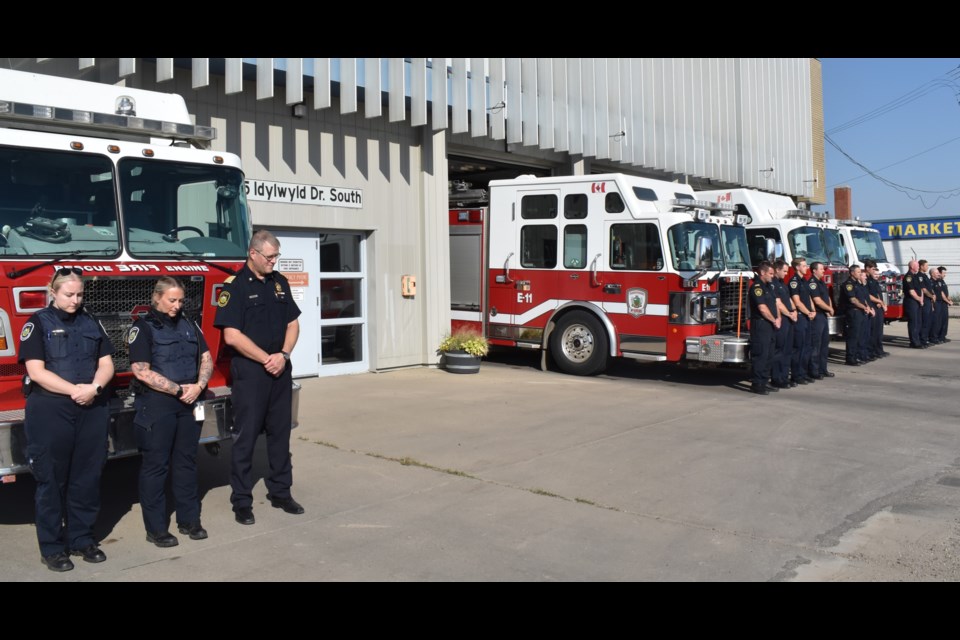SASKATOON — Saskatoon Fire Department Chief Doug Wegren, on Sunday, Sept. 8, joined the city’s firefighters in observing a moment of silence to honour their colleagues who died in the line of duty protecting and saving the lives of people in distress.
Wegren was at SFD’s Fire Station 1 on Idylwyld Drive to join 14 firefighter paramedics in observing a two-minute silence. At the same time, flags were flown at half-mast to observe Firefighters National Memorial Day, held every second Sunday of September.
All firefighters in the city’s nine fire stations silently stood in front of their ramps at 10 a.m. as they joined other towns and fire services across Canada in honouring and remembering their colleagues who showed courageous efforts and dedication in protecting the people.
For the city’s firefighters, the Firefighters National Memorial Day is one way to remember Victor Budz and Dennis Guenter, who both died in the Queen’s Hotel fire on May 31, 1980.
Budz was a 17-year veteran firefighter, while Guenter was in his second year of joining the SFD when they both perished. A memorial plaque was installed at the Scotiabank Theatre downtown to commemorate their heroism.
Wegren said firefighters always face dangerous situations when responding to emergency calls; it is a risk they know in keeping communities safe. Their training allows them to react when facing different situations.
“It is a dangerous job, and we accept that risk. Quick thinking and teamwork are needed as much as possible. That is looking out for each other, keeping your eyes open on what you are trying to accomplish,” said Wegren.
“Situation awareness is also necessary. You must know what’s happening around you and the changing conditions. Training has been a continuous part of the firefighters. We set up scenarios and see how they respond.”
He added that not all scenarios in their training would apply during emergencies where specific outcomes are expected. Still, it is all different when they are going to an emergency.
“We assess what we are going to deal with. We don’t think about it, but we understand it is part of the risk of doing our job and helping others. I would say that would be at the back of our minds,” said Wegren.
“We try and train as best as we can. We also have safety protocols, where we have officers and battalion chiefs who are in place to supervise what’s going on to try and keep everyone as safe as possible.”




